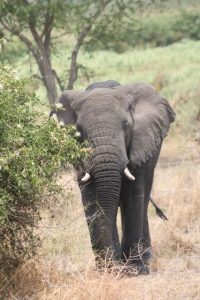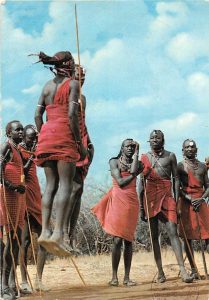What is the best time to visit Rwanda?
The best time to visit Rwanda is during the dry seasons, which fall between June to September and December to February. These months provide ideal conditions for gorilla trekking in Volcanoes National Park, as the forest trails remain drier and more accessible. Wildlife viewing in Akagera National Park is also easier during the dry season, when animals gather near water sources. While Rwanda can be visited year-round, the wet months of March to May and October to November bring heavy rainfall that can make trekking more challenging. Rwanda Travel Advice
Do you need a visa to travel to Rwanda?
Most international visitors require a visa to enter Rwanda. Tourists can apply for an e-visa online before arrival or obtain a visa on arrival at Kigali International Airport. A single-entry tourist visa typically allows a stay of up to 30 days. Rwanda also participates in the East African Tourist Visa, which permits travel between Rwanda, Uganda, and Kenya under one visa. Citizens of the African Union, Commonwealth, and La Francophonie member states can obtain visas on arrival without prior application. Rwanda Travel Advice
What vaccinations are required for Rwanda?
Travelers entering Rwanda must show proof of yellow fever vaccination. Additional recommended vaccinations include hepatitis A, hepatitis B, typhoid, and meningitis. Since malaria is present in Rwanda, visitors should take antimalarial medication and use insect repellent to reduce the risk of mosquito bites. Routine immunizations such as tetanus, polio, and measles should also be up to date. Travelers should consult their healthcare provider six to eight weeks before departure for personalized medical advice. Rwanda Travel Advice
Is Rwanda safe for tourists?
Rwanda is considered one of the safest countries in Africa for tourists. Kigali, the capital city, is known for its cleanliness and low crime rate compared to many regional cities. Tourist areas such as Volcanoes National Park, Nyungwe Forest National Park, and Lake Kivu are secure and closely monitored by park authorities. Visitors should still take standard precautions, such as avoiding isolated areas at night and keeping valuables safe. The government emphasizes security, which reassures tourists traveling across the country. Rwanda Travel Advice
What currency is used in Rwanda?
The official currency in Rwanda is the Rwandan Franc (RWF). While the franc is widely used for everyday purchases, US dollars are also accepted in hotels, tour companies, and for gorilla trekking permits. Travelers should carry small denominations of local currency for markets and transport. Currency exchange is available at banks, forex bureaus, and Kigali International Airport. ATMs are accessible in Kigali and major towns, but rural areas require cash.
How do you get around Rwanda as a tourist?
Tourists in Rwanda can travel by road, air, and water. The country has a reliable road network connecting Kigali to national parks and major towns. Many visitors use private vehicles or hire safari companies for guided tours. Domestic flights operated by RwandAir connect Kigali to Kamembe near Nyungwe Forest and to other regional destinations. On Lake Kivu, boats and ferries connect towns such as Gisenyi, Kibuye, and Cyangugu. Public buses are available but are less convenient for tourists compared to organized transport.
What are the main entry points to Rwanda?
The primary entry point to Rwanda is Kigali International Airport, located just outside Kigali city. Overland entry is also possible through border crossings with Uganda, Tanzania, Burundi, and the Democratic Republic of Congo. Popular land borders include Gatuna and Cyanika (Uganda), Rusumo (Tanzania), and Ruhwa (Burundi). Travelers should ensure they have the correct visa before arrival and confirm entry requirements based on their nationality.
What should you pack for a trip to Rwanda?
Travelers should pack light, breathable clothing for warm days and a jacket or sweater for cool evenings, especially in higher-altitude regions like Volcanoes National Park. For gorilla trekking, sturdy boots, waterproof jackets, gloves, and long trousers are essential. Sunscreen, insect repellent, and a wide-brimmed hat protect against the sun and mosquitoes. Binoculars and cameras are useful for wildlife viewing. Modest clothing is recommended in towns and rural areas to respect local customs.
What language is spoken in Rwanda?
Rwanda has four official languages: Kinyarwanda, English, French, and Swahili. Kinyarwanda is the most widely spoken language across the country. English is the primary language of business and education and is widely used in the tourism industry. French remains common among older generations, while Swahili is used for trade and regional communication. Tourists can communicate easily in English in hotels, lodges, and with guides.
What cultural practices should tourists know in Rwanda?
Respect for culture is essential in Rwanda. Handshakes are the most common form of greeting, and addressing elders politely is customary. Tourists should dress modestly, especially in rural areas and religious sites. Photography of people should only be done after obtaining permission. It is also considered impolite to point at someone with a finger. Respecting Rwanda’s memorial sites related to the 1994 genocide is important, as they are places of remembrance and reflection.
What are the top attractions to visit in Rwanda?
Rwanda offers a diverse range of attractions. Volcanoes National Park is the country’s most famous destination, home to endangered mountain gorillas. Nyungwe Forest National Park attracts visitors with chimpanzee tracking and its iconic canopy walk. Akagera National Park provides a classic safari experience with the Big Five. Lake Kivu is ideal for relaxation, water sports, and scenic boat rides. Kigali offers cultural and historical sites, including the Kigali Genocide Memorial. Rwanda’s compact size makes it possible to visit several attractions within a short trip.
What is the weather like in Rwanda throughout the year?
Rwanda enjoys a mild, temperate climate due to its high altitude. Average daytime temperatures range between 20°C and 27°C (68°F–81°F). The long dry season runs from June to September, while the short dry season occurs in December and February. The wet seasons are from March to May and from October to November. The cooler climate in highland areas such as Volcanoes National Park requires warm clothing, especially in the evenings.
Can you drink tap water in Rwanda?
Tap water in Rwanda is not safe for drinking. Tourists should drink bottled, boiled, or filtered water. Bottled water is widely available in shops, hotels, and restaurants across the country. Using bottled water for brushing teeth is recommended. To reduce plastic use, visitors can carry reusable bottles with portable filters. Avoiding ice cubes in drinks and consuming well-cooked meals further minimizes health risks.
What is the tipping culture in Rwanda?
Tipping in Rwanda is not compulsory but is appreciated as a sign of gratitude. In restaurants, a tip of 5–10% of the bill is customary. Safari guides, porters, and drivers often receive tips ranging from USD 10–20 per day, depending on the quality of service. Hotel staff and porters may be tipped around USD 1–2 per bag. Tipping in US dollars or Rwandan Francs is acceptable, provided the notes are clean and recent.
What should tourists wear in Rwanda?
Tourists should wear light clothing during the day and pack warmer layers for evenings. Neutral-colored clothes are best for safaris, while sturdy trekking attire is essential for gorilla and chimpanzee tracking. In towns, modest dressing is recommended to respect cultural norms. Avoid camouflage clothing, as it is reserved for military use. A combination of casual safari wear and smart-casual outfits for city visits ensures tourists remain comfortable and respectful.
How reliable is internet and mobile connectivity in Rwanda?
Rwanda has strong internet and mobile connectivity compared to many African countries. Kigali offers widespread Wi-Fi in hotels, cafes, and public spaces. Mobile providers such as MTN and Airtel provide reliable coverage across the country, including many rural areas. Tourists can easily purchase local SIM cards for affordable data packages. While internet speeds are generally fast in cities, coverage in remote national parks may be limited.
Can you use credit cards in Rwanda?
Credit cards are accepted in major hotels, lodges, and restaurants in Kigali and other tourist hubs. Visa is the most widely used card, while Mastercard is also accepted in many establishments. However, rural areas and small businesses often require cash payments. Tourists should carry a mix of Rwandan Francs and US dollars to cover expenses in areas where card facilities are unavailable.
What are the main health and safety tips for Rwanda?
Visitors should carry mosquito repellent, sunscreen, and personal medications while traveling in Rwanda. Using mosquito nets at night reduces the risk of malaria. Travelers should also practice good food hygiene, such as eating thoroughly cooked meals and avoiding raw vegetables washed in untreated water. Rwanda’s roads are generally safe, but drivers should remain cautious in rural areas. Respecting local laws, following park guidelines, and staying with guides during wildlife activities ensure safety.
How much should you budget for a trip to Rwanda?
Rwanda accommodates travelers with different budgets. Budget travelers can spend around USD 50–100 per day, covering guesthouses, meals, and transport. Mid-range visitors should budget USD 150–300 per day, which includes comfortable lodges and guided tours. Luxury travelers may spend USD 400 or more per day at high-end lodges with premium services. Gorilla trekking permits cost USD 1,500 per person, which is the most significant expense for most visitors.
Why should you visit Rwanda for a safari?
Rwanda offers a safari experience that blends unique wildlife encounters with scenic landscapes. Tourists can trek to see endangered mountain gorillas, track chimpanzees in lush rainforests, and explore savannah landscapes with the Big Five in Akagera National Park. The country also boasts one of Africa’s cleanest and safest capital cities, making travel easier and more enjoyable. Rwanda’s compact size allows tourists to combine gorilla trekking, safaris, and cultural experiences in a single trip, making it a premier African destination. Rwanda Travel Advice




